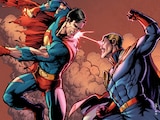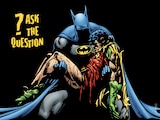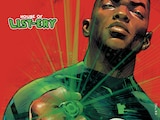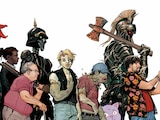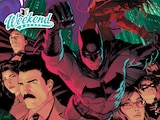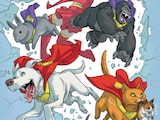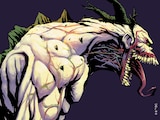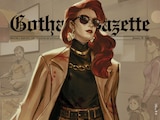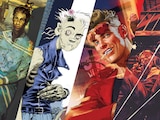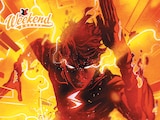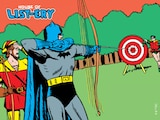Of the many Milestone superheroes, only a handful have had much life outside of the comics. Static—the most famous of the original Milestone creations—has been adapted in animation several times, from his own four-season series Static Shock to appearances in Justice League: Unlimited and Young Justice. Icon, Rocket and Hardware have similarly been brought to the small screen in the Young Justice series. It’s fitting then, that these four heroes were the ones that Milestone chose to launch with when the iconic imprint made its return to comic shelves last year.
But they don’t represent the whole Milestone picture. Of the four initial titles that Milestone introduced when it first emerged in 1993, there remains a comparatively lesser known, but just as relevant and thematically powerful book that has yet to make its way back to print…until now. Let’s talk about the Blood Syndicate.
The Who
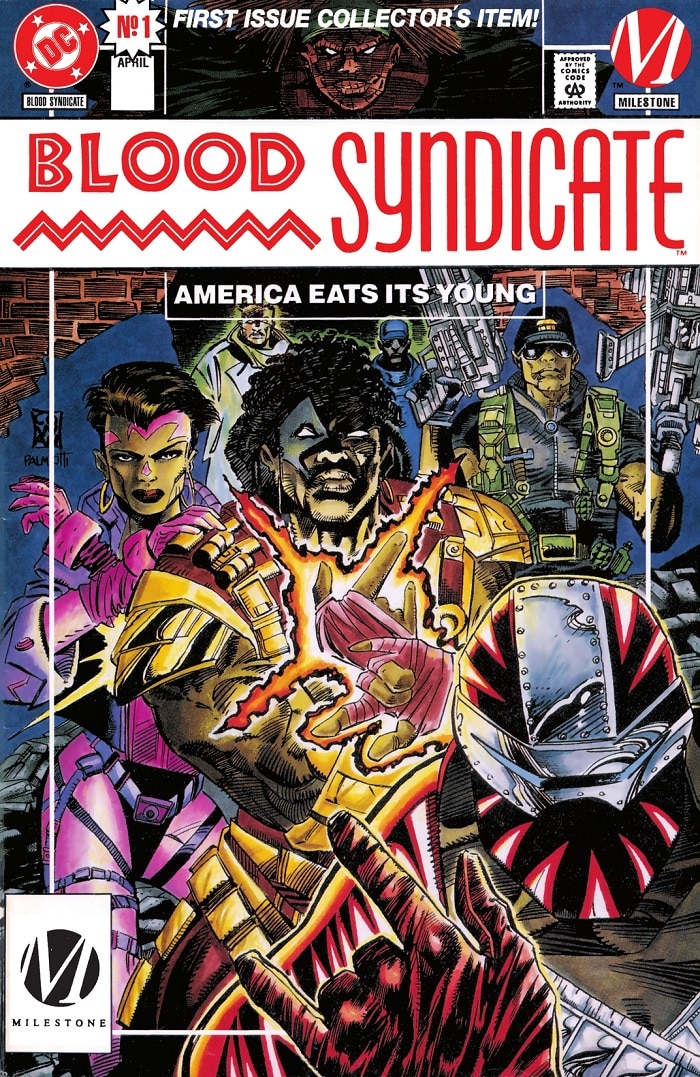
The Blood Syndicate is a gang of “Bang Babies” (metahumans who survived “the Big Bang,” the nexus event in which created superpowers within the city of Dakota). The gang is made up of two warring street tribes—the Paris Bloods and the Force Syndicate—who wage war on the criminals of Paris Island, as well as the police force who they hold responsible for the Big Bang.
The crew was initially composed of leader Tech-9 (who had techno-firepower abilities), Masquerade (powers of camouflage), Brickhouse (a walking, talking woman made of brick), Fade (a man who can pass through walls), Third Rail (with the power to grow in size and strength when absorbing electricity), DMZ (masked man with the powers of flight, super speed and strength), Wise Son (powers of invulnerability and super strength), Flashback (Fade’s sister who had the power to turn back time by three seconds) and Holocaust (a pyrokinetic whose powers of flame made him super strong). Although the crew was united against a common enemy, their disparate wants, priorities and identities led to many schisms within the team.
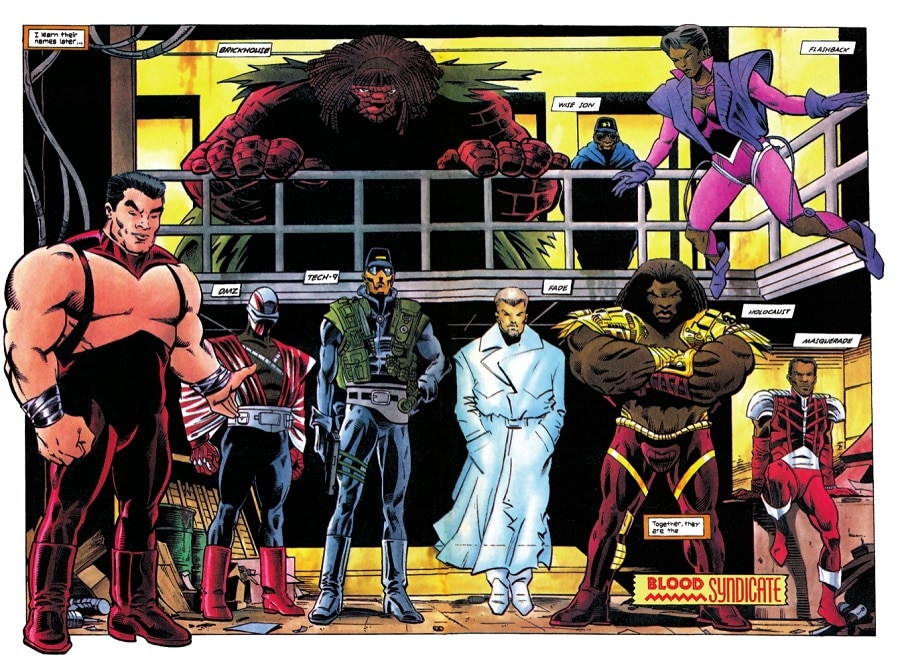
At the end of Blood Syndicate #1, Holocaust challenged Tech-9 for leadership. Many on the crew knew Holocaust was an unstable sadist who was only interested in himself, but the code of the Syndicate was to go along with whomever fought for supremacy, no matter the outcome. When it came to the belief system of the crew, those who had the power made the rules.
The What
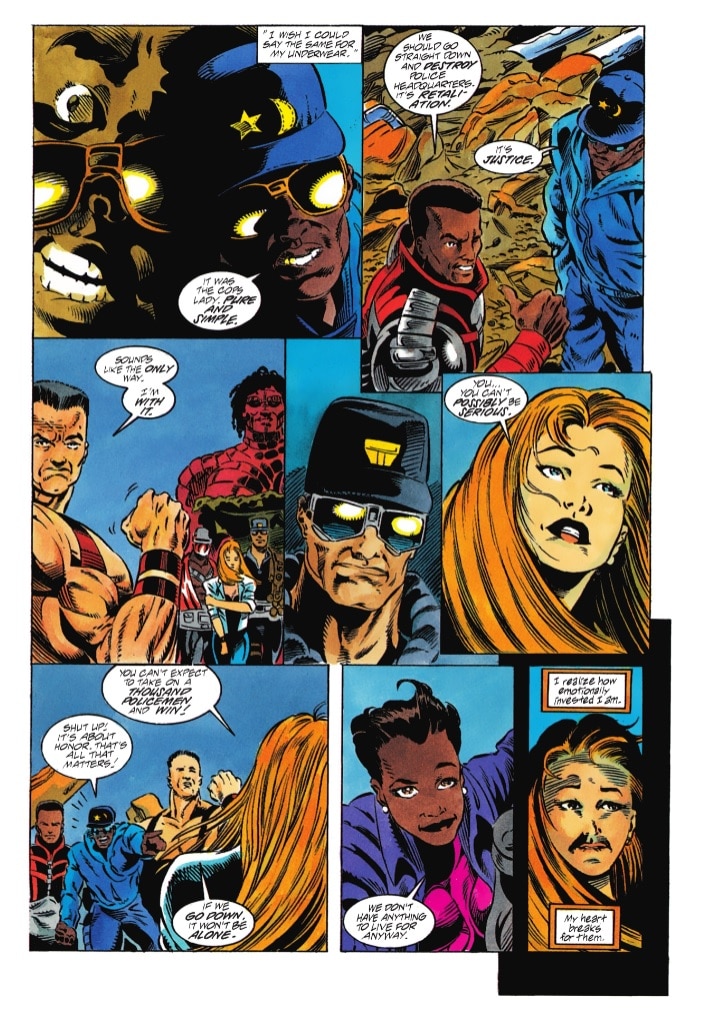
Let’s repeat the first point: The Blood Syndicate are a gang. Unlike Hardware or Static, they didn’t seek to make a name for themselves out of sense of altruism. As they told reporter Rob Chaplik in issue #3, their sense of justice was retaliation to anyone who stepped up to endanger them. They spent their early days destroying crack houses, attacking police HQs and killing without mercy.
For a bunch of young super-powered gangsters, anything that stood in opposition to them was a threat. And because of the aforementioned personality clashes, those who stood against them could be anyone from the police to the media to other Milestone heroes like Icon. It took a long time for the crew to solidify its views on what it wants to fight for, and not simply whom it felt like fighting against. This led to an early dismissal for Holocaust, who proved to be a little more vicious than even the most veteran of Paris Island gangbangers. He saw himself as a god that answered to no one, but that was not the case for the other members of the Syndicate, who proved before long to be all too human…
The Why
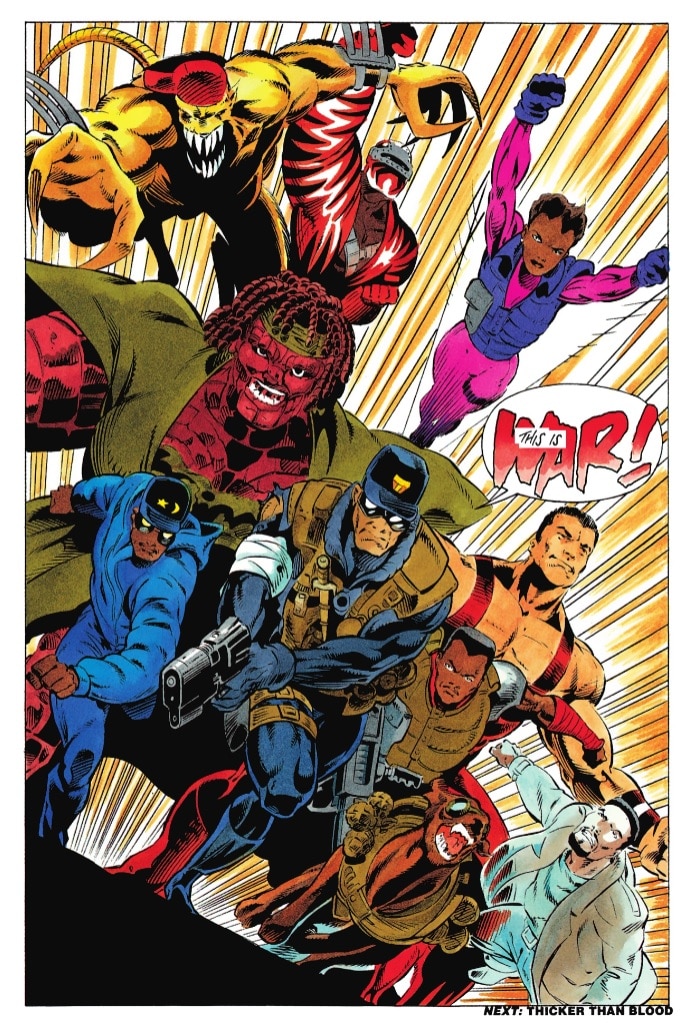
With such a gnarly group that’s described as anything but heroic, why should you read Blood Syndicate?
Milestone excels at crafting stories involving very real characters with problems and hang-ups that are deeply relatable. The Blood Syndicate were a gang of young hotheads with little but revenge and ego on their mind, but that ended up being the least of their concerns.
For starters, their mortality was always in question. More than once, the team leapt into situations before looking and would need to be saved beyond the brink of death by Flashback. Sometimes that wouldn’t be enough, as the crew learned when Tech-9 suddenly melted to death, the delayed side-effect of exposure to the Q-Juice that gave the team their powers on the night of the Big Bang.
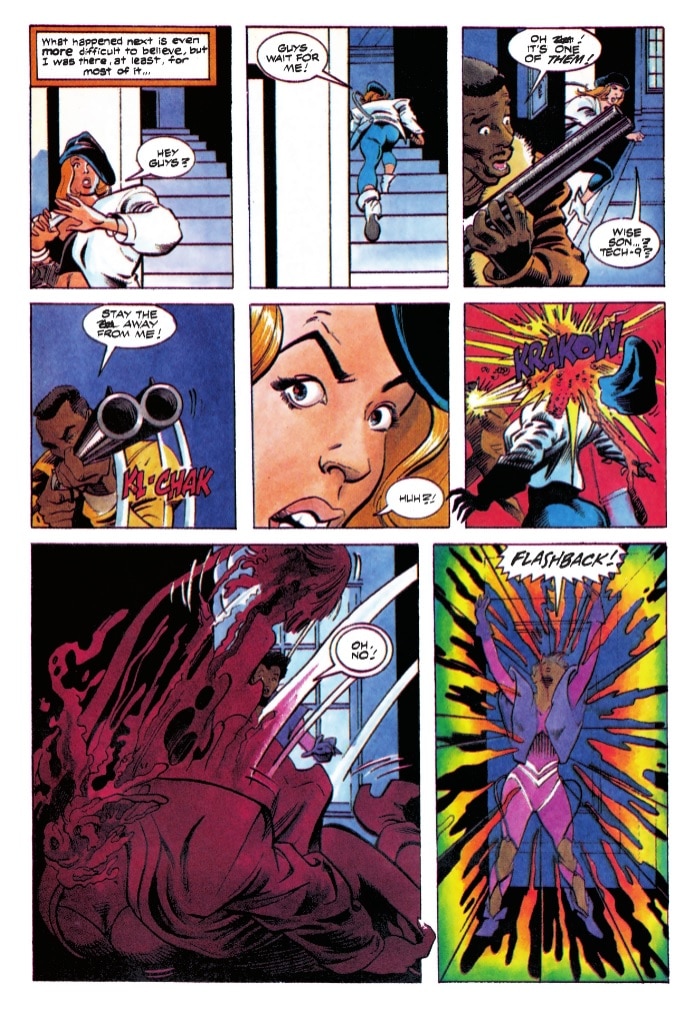
Often the Syndicate’s own individual identities would be a source of interpersonal conflict. Most of the team was comprised of Black and Latin Americans, with intersectional backgrounds crossing wires with others. Wise Son, as evidenced by the Star and Moon sign of Islam on his cap, is Muslim, and as such had a different outlook on their adventures than the others. This is partly why after he assumed leadership following the death of Tech-9, he found himself a less admired leader. Another example was when during an encounter with a villain known as Demon Fox, readers learned that Fade was gay and Masquerade was transgender. While queer representation has seen a rise in mainstream comics in the past couple of decades, in 1993, trans representation was virtually unheard of.
But representation of all people was Milestone’s mission statement from the very beginning. Often touted as merely “the Black comic company,” the line was populated by Asian, Hispanic and LGBTQ+ people both on the page and in the offices. Blood Syndicate was co-created by Ivan Velez Jr., whose work as an openly gay writer and artist brought him to co-founder Dwayne McDuffie’s attention, and the two laid the groundwork on what became the Blood Syndicate. Tech-9 was Puerto Rican. Flashback suffered from a crack addiction. These weren’t the kinds of character who headlined the titles of comic books, and even if such characters were featured, they never were the stars of the book. Blood Syndicate was different.
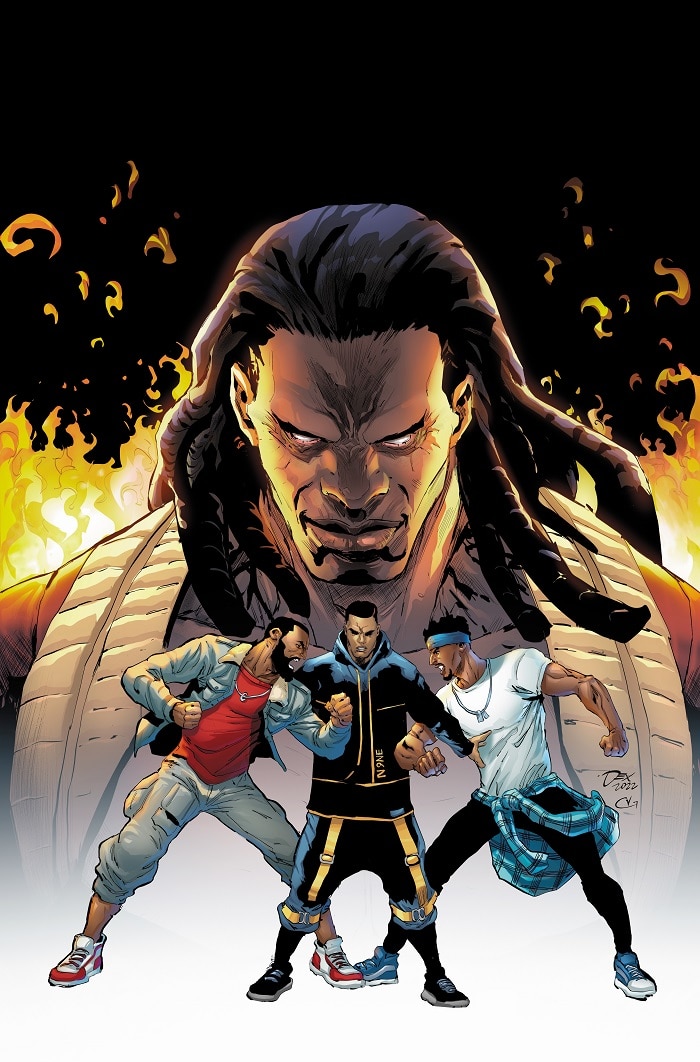
It's been nearly thirty years since Blood Syndicate first hit the shelves of comic shops across America, and nothing like it has been seen since. With its lack of media representation—save for a scant appearance of Brickhouse in Static Shock and Holocaust in Young Justice—the book is the least exposed of all the Milestone major players, yet it may be the most radically challenging. A team consisting of gang members joining together and struggling not to fall apart while working their way from the bottom of a moral abyss into the light of heroism—that’s not an easy story to jump into. But the series’ commitment to true diversity and unpredictable, action-packed stories keeps it as one of the most unique and memorable inventions of the Milestone team, one that’s more than due for a comeback.
So...interested in checking it out? Blood Syndicate #1 is now free to read on DC UNIVERSE INFINITE!
Look for Blood Syndicate to return in a new six-issue limited series from Geoffrey Thorne, CHRISCROSS and Juan Castro, landing in stores on Tuesday, May 10.
Donovan Morgan Grant writes about comics, graphic novels and superhero history for DCComics.com. Follow him on Twitter at @donoDMG1.

